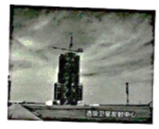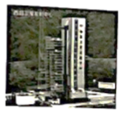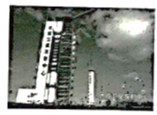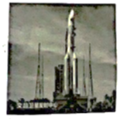—Tom, could you tell me ______?
—She is an office worker.
| A. | who is she |
B. | who she is |
C. | what she is |
D. | what is she |
—I have been to Mount Fanjing three times. What about you?
—I have been there three times, too. And I would like to visit it a ______ time.
| A. | three |
B. | third |
C. | four |
D. | fourth |
—Maria, we will graduate in a week.
—______! We should keep in touch.
| A. | How time fly |
B. | What time fly |
C. | How time flies |
D. | What time flies |
— Uncle Wang, could you tell me the secret of your good health?
— In my view, ______ vegetables and ______ meat.
| A. | less; less |
B. | more; more |
C. | more; less |
D. | less; more |
—Do you know there are more than 3,000 languages ______ in the world?
—Sorry, I have no idea.
| A. | speaking |
B. | spoken |
C. | speak |
D. | spoke |
—Using public chopsticks ______ necessary when eating with others.
—That’s right.
| A. | is |
B. | are |
C. | was |
D. | were |
—What’s the matter with my throat, doctor?
—______. Drinking more hot water is OK.
| A. | Something serious |
B. | Nothing serious |
| C. | Serious something |
D. | Serious nothing |
—Mum, could I watch the movie The Battle at Changjin Lake tonight?
—Of course, if your homework ______.
| A. | finishes. |
B. | finished |
C. | was finished |
D. | is finished |
—What’s your dream, Lingling?
—I’m going to be ______ excellent teacher like Zhang Guimei.
| A. | a |
B. | an |
C. | the |
D. | / |
下面是一篇未写完的短文,请认真阅读,为短文写一个30~40词的结尾,使短文连贯完整。
Family is the first school in one’s life. Family education is very important. In my family, my parents often…
_______________________________________________________________________________________________________________________________________________________________________________________________________________________________________________________________________________________________________________________________________________________________________________________________________________________________________________________________________________________________________________________________________________________________________________________________________________________________________________________________________________________________________________________________________________________________________________________
阅读短文。判断标有题号的每一行画线部分和有漏字符号(^)处是否有错误。如无,在该行右边横线上画一个“√”;如有(每行只有一个),则按下列情况改正)
画线部分为多余的词:把该词写在该行右边的横线上并画上斜线(\)。画线部分为错词:在该行右边横线上写出一个正确的词。有漏字符号(^)处缺一个词:在该行右边横线上写出所缺的词。
John is a 13-years-old schoolboy. He studies very hard at school and gets good ____1____
grades in all his subject. But he doesn’t like sports. Six months ago, he did not ____2____
feel good. He often had colds and felt sick to his stomach. His parents took him ____3____
to see a doctor. After asking him some questions and giving him a careful ____4____
examination, the doctor said which it was not serious and told John’s parents ____5____
^ to worry about it. Then the doctor told John to take more exercise and stop ____6____
eating fast food. From then on, John went to school by a bike every day instead ____7____
of taking the bus. At first, he felt tire and weak. But two weeks later, he got ____8____
fitter and started to enjoy it. Since he started ride a bike, he has not had a cold. ____9____
To his surprise, he has not had a stomachache since he stoped eating fast food. ____10____
根据对话内容,从选项中所给的五个选项中,选出可以填入空白处的最佳选项。每个选项只能选一次。
A: ___1___
B: Pretty good. ___2___
A: Who did you go with?
B: I went with my parents and my brother.
A: Did you go by bus or by car?
B: Neither. ___3___
A: How long did it take you to get there?
B: ___4___ It was much faster.
A: ___5___
B: It has changed a lot with the help of the government.
A: I’m glad to hear that.
| A. | We went by high speed train. |
| B. | How was your weekend? |
| C. | What do you think of your hometown? |
| D. | I went back to my hometown to see my grandparents. |
| E. | Only one hour. |

Do you know how people send messages to each other? Scientists say only 35% of our communication is done through spoken language. ___1___ It is natural for us to use our bodies to share our thoughts and feelings.
___2___ For example, smiling may be the easiest body language. People understand its meaning without thinking. ___3___ But the meaning of some body languages change from one culture to another. Most people move their heads up and down to mean “yes” and side to side to mean “no”. You may think that these have the same meanings everywhere. ___4___ In a country, people move their heads side to side to mean “yes”, and up and down to mean “no”.
As we have looked at some examples, there are many kinds of body languages and their meanings may change from one culture to another. ___5___ If we don't understand them, we may make a mistake and send a wrong signal(信号). The best advice is to watch what other people do in their cultures and follow them.
| A. | Some of the ways of body language are the same all over the world. |
| B. | Body language is the most important. |
| C. | It is necessary for us to understand them. |
| D. | So it is good to smile when we meet people. |
| E. | The other 65% is done through “body language”. |
| F. | It is not polite to smile at people. |
| G. | However, they have the opposite meanings. |
China has four satellite launch bases(卫星发射基地). They are Jiuquan in Gansu, Xichang in Sichuan, Taiyuan in Shanxi and Wenchang in Hainan.

Jiuquan Satellite Launch Center which was founded(建立)in 1958 is one of the four famous satellite launch bases in China. The center has created eight proud firsts for China’s space industry. On April 21, 1970, China’s first man-made earth satellite was raised there. The Long March 2F rocket carrying the Shenzhou XII manned spacecraft blasted off(发射)from Jiuquan Satellite Launch Center in June, 2021.

Xichang Satellite Launch Center, also known as Xichang Satellite City, was founded in 1970. After 37 years of development, the center has thousands of sets of excellent equipment(设备). It is known as the “Oriental Houston(东方休斯顿)”.

Taiyuan Satellite Launch Center was founded in 1967. The center has launched China’s first weather satellite “Fengyun-1”, making nine firsts in the history of China’s satellite launches.

Wenchang Space Launch Center(founded in 2009)is now the fourth satellite launch center of China. Because it is only 19 degrees away from the equator(赤道), more rocket loads(负载)are possible, making it the center of China’s space development in the future.
1. How many satellite launch bases are there in China according to the passage?
| A. | There are three. |
B. | There are four. |
C. | There are five. |
D. | There are six. |
2. What does the underlined words “manned spacecraft” mean in Chinese?
| A. | 载人飞船 |
B. | 宇宙空间站 |
C. | 航空航天器 |
D. | 人造地球卫星 |
3. Which center is known as the “Oriental Houston”?
| A. | Jiuquan Satellite Launch Center. |
B. | Xichang Satellite Launch Center. |
| C. | Taiyuan Satellite Launch Center. |
D. | Wenchang Space Launch Center. |
4. Choose the order of the foundation(成立)time of the four centers according to the following:
①Jiuquan ②Xichang ③Taiyuan ④Wenchang
| A. | ①②③④ |
B. | ③①④② |
C. | ③④②① |
D. | ①③②④ |
5. Which of the following is NOT right?
| A. | The center of Taiyuan has made nine firsts since 1967. |
| B. | The Shenzhou XII manned spacecraft blasted off in June, 2021. |
| C. | The center of Jiuquan has created eight proud firsts since 1968. |
| D. | The center of Wenchang will be the center of China’s space development. |
If you travel in New Zealand, you may find some very interesting things. It is called “New Zealand Four Strange Things”.
|
Have you ever seen that cows are lined up? New Zealand is so large. It is impossible for people to milk cows by hand. So the farmers trained the leading cow to take the cows to the milking station twice a day. The leading cow has a sensor(传感器)on its head. When it is time for milking, the sensor warns the leading cow to take the lead. |
|
Horses are mainly raised for viewing(观赏)and racing, so the coat color is very important. Wearing sunscreen(防晒)clothes on horses can avoid the harm from the sun. The clothes on horses are filled with weights that are the same weight of the rider. When the weights are replaced by the rider during the race, “________” just like the sportsman running with sandbags. |
|
Sheep in New Zealand used to have tails. Because they poop(排便)when they’re born, grass flies are interested in them. Grass flies lay their eggs in the tails of the baby sheep, causing illness and death. Then people tie their tails. As time passes, the sheep become tailless. This improves the survival rate(成活率). |
|
New Zealand’s alpacas(羊驼)were introduced from South America. They are quite different from two-humped camels(双峰驼). An alpaca weighs about 55 kg to 65 kg. Its shape is like a sheep. Only one grown-up male(雄性)alpaca can be found in each group. It is the leading one. Alpacas are gentle, clever and human. |
1. Why do the cows in New Zealand stand in line?
| A. | Because the cows want to eat grass. |
B. | Because the cows are ready for milking. |
| C. | Because the cows used to do so. |
D. | Because the leading cow asks them to do so. |
2. Which of the following can be put in “________”?
| A. | the horses will be used to running with weights |
B. | the horses can run faster than before |
| C. | the horses won’t be able to run |
D. | the horses will not be used to running |
3. How do people make sheep’s tails become tailless?
| A. | By cutting them. |
B. | By tying them. |
C. | By pulling them. |
D. | By pushing them. |
4. How much does an alpaca weigh?
| A. | About 30 kg to 40 kg. |
B. | About 40 kg to 50 kg. |
| C. | About 50 kg to 60 kg. |
D. | About 55 kg to 65 kg. |
5. Which is the best title for this article?
| A. | Travel in New Zealand |
B. | Cows, Horses, Sheep and Alpacas |
| C. | New Zealand Four Strange Things |
D. | Animals in New Zealand |